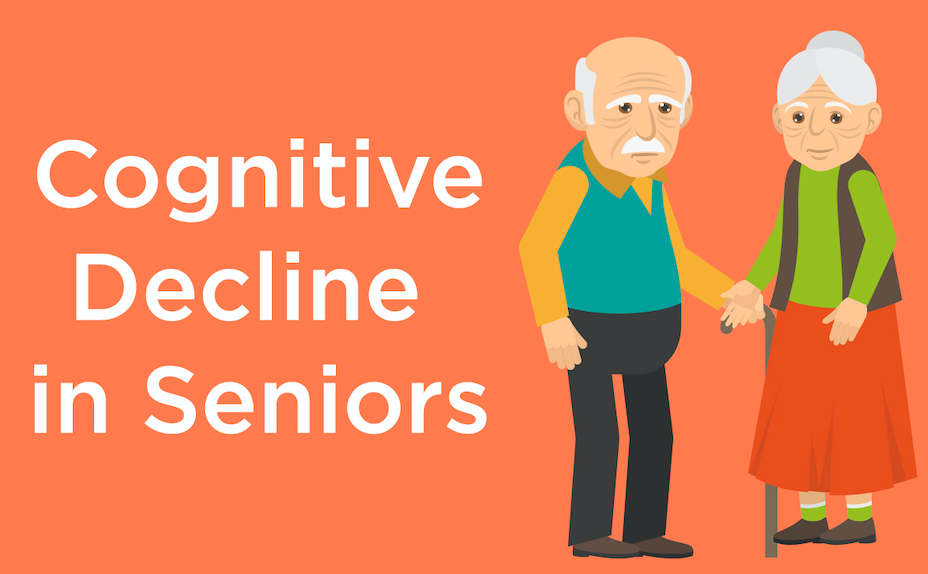As the elderly age, there are different changes that may occur. Many family caregivers may wonder why these differences are happening to their senior loved one. Learn more below, Read the text alternative of Cognitive Decline in Seniors.
Share this Image On Your Site
Cognitive Decline in Seniors
Normal Aging vs Dementia
As we age, we will all experience cognitive aging, which is a natural decline in memory, thinking and decision making skills. However, neurodegenerative diseases – like Alzheimer’s and dementia – cause cognitive decline at a rapid and sometimes unpredictable rate. Let’s take a closer look at the different types of cognitive decline.
Normal Cognitive Aging
- Neurons remain stable although function may decline
- Gradual and variable changes in cognition
- Occasional difficulty recalling people or places
- Forgetting an appointment or event every now and then
- Pauses sometimes to recall a word or process information
- Misplacing an item occasionally
Cognitive Decline due to Dementia
- Extensive and irreversible neuron loss in the brain
- Severe and progressive declines in cognition
- Difficulty remembering the names of close friends and relatives
- Frequently forgetting appointments and events
- Trouble verbalizing thoughts and remembering common words
- Constantly misplacing items
The Facts of Cognitive Decline
- 1 in 9 adults age 45 or older report confusion or memory loss
- 40% of adults who reported cognitive decline had to give up day-to-day activities
- More than ½ of people with memory loss have not talked to a healthcare professional
- ½ of patients with dementia had not received a clinical cognitive evaluation by a physician
- Delirium, or an abrupt state of mental confusion, is preventable in 30 to 50% of cases
- 81% of adults who have reported memory problems have at least 1 chronic condition
- 35% of adults with cognitive decline need help with household tasks
How to Maintain Healthy Cognition
- Regular exercise
- Getting enough sleep
- Mental stimulation
- Maintaining heart health
- Healthy diet
- Keeping stress under control
- Learning something new
Individuals with moderate to severe dementia or another cognitive impairment often require special care, including supervision (sometimes 24 hours a day). For more resources on how to manage cognitive health, contact Caring Senior Service.


